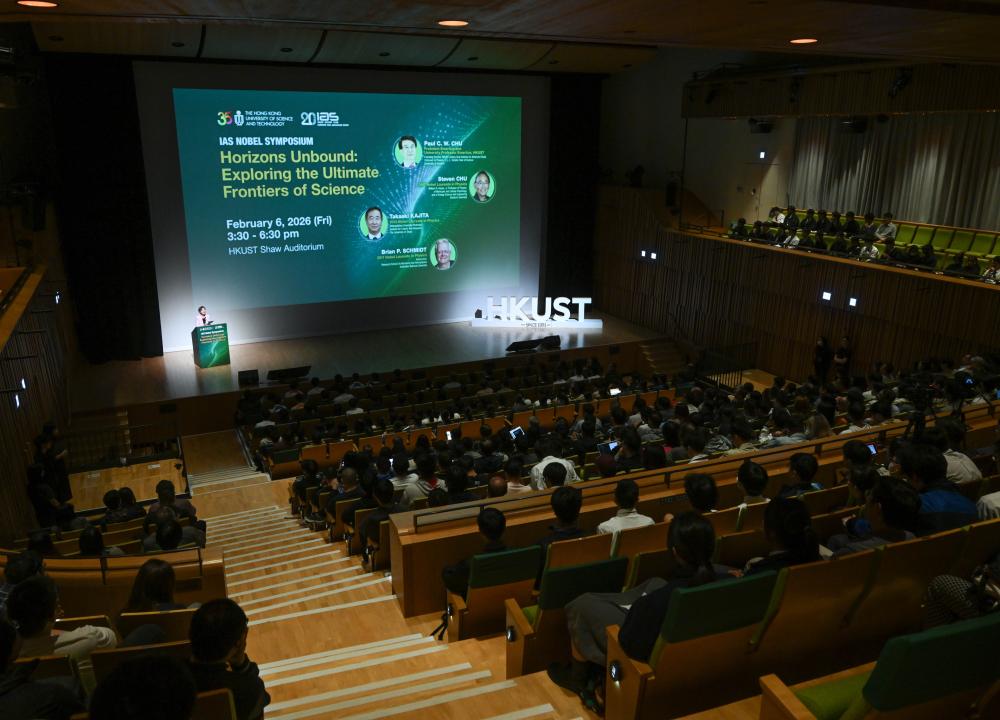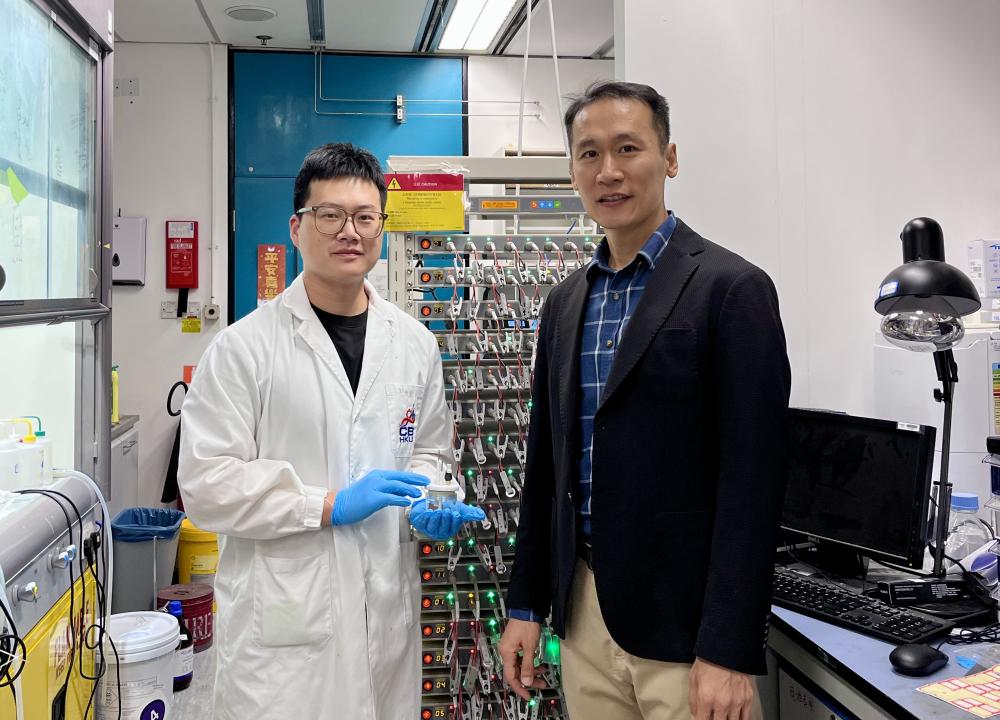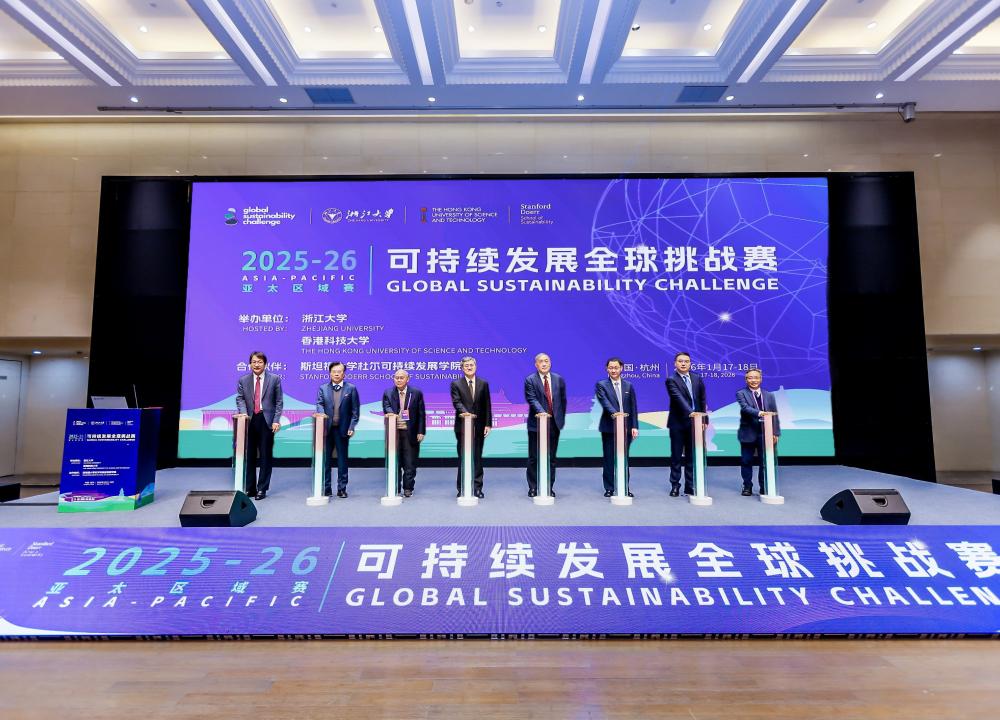First Chinese Winner of Wolf Prize and Father of OLED Shines Light on Innovative OLED and OSC Technologies at HKUST
At the invitation of the Institute for Advanced Study (IAS) of the Hong Kong University of Science and Technology (HKUST) Prof Ching W Tang, the first Chinese Wolf Prize Laureate in Chemistry, better known as the father of OLED spoke today on the distinctive characteristics and breakthrough developments of organic light emitting diodes (OLED) and organic solar cells (OSC). Prof Tang is currently a Visiting Member of IAS.
Titled “Organic Light Emitting Diodes and Organic Solar Cells”, the Distinguished Lecture was hosted by Prof Hoi Sing Kwok, Chair Professor of the Department of Electronic and Computer Engineering. OLED is a flat light emitting technology made by placing a series of organic thin films between two conductors. Compared to liquid crystal display (LCD), it possesses a number of major advantages such as a rollable display, a thinner profile, being lighter in weight, self-luminous, clear and power-efficient, complete with a greater viewing angle. OLED demonstrates great development potential, it being widely applied in an extensive range of display applications such as mobile phones, digital cameras and large-screen televisions. Significant Progress in OSCs has also been made in recent years, culminating in dramatic improvements in the power conversion efficiency which approaches 10%. Prof Tang brought home to an eager audience the strengths of OLED and OSC and their future technological prospects.
A visibly pleased Prof Henry Tye, Director of IAS said, “The OLED market being set for rapid expansion, we feel deeply honored to enlist Prof Ching W Tang as our Visiting Member, who shall amply facilitate the research and development of OLED technology in the local setting.”
Following matriculation at King’s College in Hong Kong, Prof Tang attended and graduated from the Department of Chemistry at the University of British Columbia in 1970. After his PhD in Physical Chemistry in 1975, he joined Eastman Kodak and was charged with developing organic semiconductors and the electronic appliances. In 2003, he was named Distinguished Fellow of the Kodak Research Laboratories. From 2006 onwards, he has been the Doris Johns Cherry Professor at the University of Rochester.
A co-inventor of the tiny molecule that emits light with Prof Steven A Van Slyke in 1987, Prof Tang was hailed as the father of OLED. He was also the discoverer of ‘organic heterojunction’ in the early 1980s, a structure considered to be the most important discovery in the field of organic electronics that forms the basis for the successful development of OLED as a display technology. Prof Tang has been the recipient of numerous awards and fellowships. He was elected Fellow of the American Physical Society in 1998 and Fellow of the US National Academy of Engineering in 2006. He also reaped Eastman Kodak Innovation Award (2000), the Jack Rajchman Prize of the Society of Information Display (2001), the Rochester Law Association Inventor of the Year Award (2002) and the Humboldt Research Award (2005). In 2010, he was conferred the honorary doctorate by the Shanghai University.
Prof Tang’s many honors culminated in his being made the first Chinese Wolf Prize Laureate in Chemistry in 2011 for his seminal research contributions. Established in 1976, the Wolf Prizes are annually awarded to outstanding individuals for their major contributions to arts and sciences – in the fields of Agriculture, Chemistry, Mathematics, Medicine, Physics and Arts. The Wolf Prize is second only to the Nobel Prize in world prestige. Of every three scientists who win Wolf Prize in physics and chemistry one has gone on to win the Nobel Prize.
For media enquiries, please feel free to contact :
Mavis Wong
Tel: 2358 6306
Email:maviswong@ust.hk












